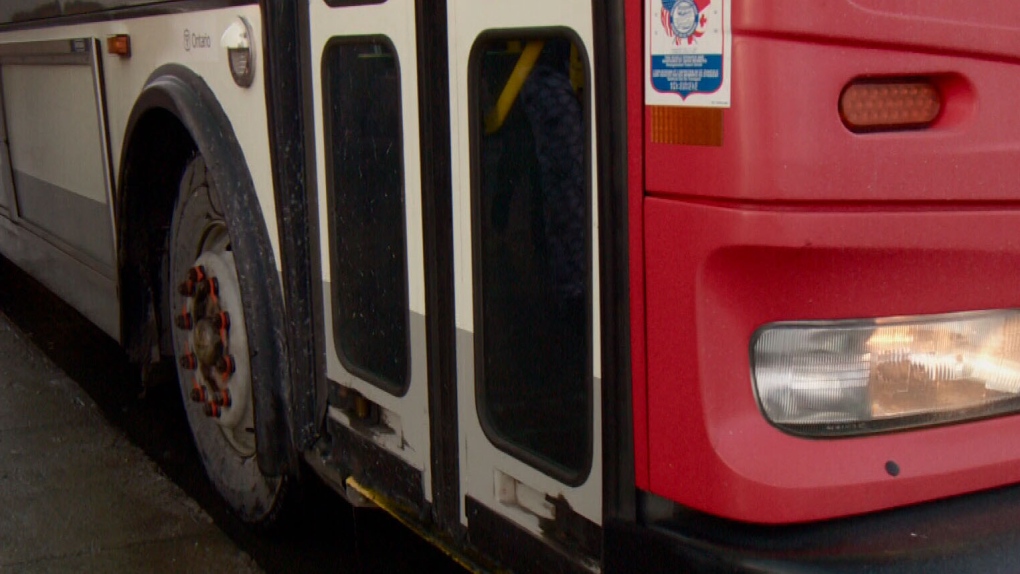
The City of Ottawa’s auditor general has found issues within OC Transpo’s maintenance facilities surrounding supervision and certification of apprentices and around the outsourcing of some work to other garages.
The investigation came following a complaint to the city’s fraud and waste hotline. A report has been prepared for the Sept. 20 Audit Committee meeting.
OC Transpo employs approximately 167 mechanics and 33 apprentices within the Transit Bus Operations and Maintenance Services department who provide 24/7 service across four garages. They oversee the maintenance and upkeep of the 738-bus and 80-minibus Para Transpo fleet, the Auditor General says. This includes responsibility for regular preventative maintenance inspections, as well as defect and collision repairs, as needed.
However, the auditor general’s office found that the number of licenced mechanics working at OC Transpo has been decreasing since 2018, putting additional pressure on its ability to maintain its bus fleet. In response, OC Transpo has been growing its apprenticeship program, with the goal of increasing the number of apprentices by the end of 2024.
Issues with apprentices
A fraud and waste hotline complaint alleged that apprentices were working on safety critical systems, such as brakes, without supervision. According to the report, OC Transpo management requires supporting documentation to demonstrate that work has been completed and it must be signed by a licenced 310T mechanic and the garage supervisor. That, however, was not always happening.
“During the investigation, we observed that there is no formal documentation outlining specific responsibilities and expectations for apprentice supervision. In our detailed testing, we found that apprentices are not consistently evidenced as being supervised as jobs that require an inspection check sheet are not always being signed off by a licensed 310T mechanic before the bus goes back into service,” the report states.
The report said 53 per cent of the inspections the office tested did not have a licenced mechanic sign off on the work and it found one case where there was no evidence of supervision of an apprentice working on rear brakes, which are a critical safety component of a bus.
“While apprentices need hands-on experience working on critical safety systems, they must be adequately supervised as they do not have sufficient knowledge and experience to complete these tasks on their own. Apprentices who are working without the direct supervision of experienced, licenced mechanics, especially on critical safety systems, could potentially cause safety risks and expose the City to liability risks in the event of an incident,” the report said.
The investigation also found thousands of dollars were paid in “premiums” to apprentices in contravention of the collective agreement with the Amalgamated Transit Union local 279. Garage supervisors approved nearly $32,000 in ineligible premiums for apprentices performing brake and inspection jobs in 2023 and more than $9,400 in 2024, despite claims from management that supervisors were told to stop the practice. The auditor general’s office could not find evidence of a formal directive.
It also found one apprentice had been working on buses prior to obtaining the required registration with the province. The apprentice’s registration was dated May 31, 2023, but the investigation found evidence that the individual had been working prior to that date.
Third-party outsourcing
According to the report, approximately 1.8 per cent, or roughly $3.1 million worth of OC Transpo’s maintenance work was outsourced to a third party in 2023.
Work is outsourced if it is under warranty or in case of a lack of resources in-house. The collective agreement also requires management justify why work must be outsourced through a formalized process.
The investigation, however, found cases of insufficient work done by third parties that could have posed a safety risk to the public while the bus was in service. This also led to in-house maintenance having to redo the work. The report did not present specific information as to what work was performed, who performed it, or what risks it could have posed.
The investigation also found that there is no defined or formalized quality assurance process for inspecting work that has been outsourced before the bus is put back into service. This means any faults or defects are frequently not discovered until the bus is already on the road or once it returns to the garage after a shift.
“Without mitigating quality assurance processes, issues related to vendor work increases the risk to public safety and the City’s exposure to liability,” the report says.
Recommendations
The report makes six recommendations to improve maintenance practices at OC Transpo:
- Clear responsibilities and expectations are established for apprentice supervision, including specific guidance for sign-off and documentation;
- Formal communication is issued to prevent approval of ineligible premium payments made to apprentices;
- All apprentices are registered with Skilled Trades Ontario prior to any work on OC Transpo buses;
- Quality assurance processes are formalized for maintenance performed by third-parties by implementing a risk-based inspection program;
- Standardized processes are established for tracking, reporting and escalating issues with vendor performance; and
- Process improvements are prioritized, including standardized process documentation, and the maintenance of electronic records and supporting documentation.
Management said it agreed with all six recommendations. OC Transpo said its Acting Chief Safety Officer is overseeing the re-development of the apprentice program and expects the process to be completed in the new year. A revised process for tracking and assigning tasks to apprentices is anticipated to be implemented by this fall. A formal quality assurance program for third-party outsourcing is being implemented by the spring of 2025, and the digitizing of bus maintenance records is to be completed by spring 2025 as well.